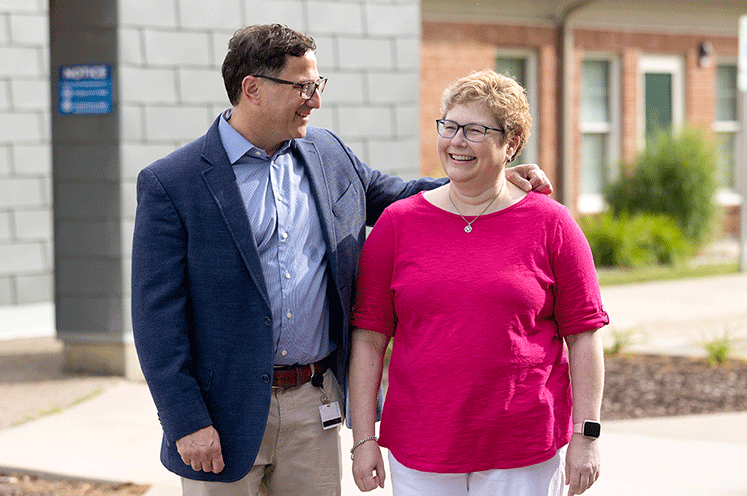Rebecca's Story
Rebecca's team worked with her on a personalized breast cancer care plan, which included a lumpectomy with reconstruction, chemotherapy and radiation.
Our experts use oncoplastic surgery to address size changes or deformities after a lumpectomy.
A lumpectomy procedure removes less tissue from your breast than a mastectomy, but depending on the size of the tumor, this amount of tissue can vary. Lumpectomy is often referred to as breast conservation therapy. However, you may still notice changes in your breast from this procedure and other treatments such as radiation therapy. This may include a difference in breast size, or deformities such as a misshapen breast, dents or dimples.
Through oncoplastic surgery, we can address any changes in the breast by using breast lift or reduction techniques, or fat grafting—harvesting fat from another part of the body and injecting it into specific areas of the surgically altered breast to match the shape of the other breast. If necessary, we can also perform a symmetry procedure on the healthy breast to make them look the same.
If you had a lumpectomy reconstruction in the past and didn’t have a good outcome, we can help. Our surgeons are experienced in techniques that can correct issues from previous reconstruction procedures.
Rebecca's team worked with her on a personalized breast cancer care plan, which included a lumpectomy with reconstruction, chemotherapy and radiation.


After a mastectomy or lumpectomy, breast reconstruction surgery has been shown to provide a variety of mental and physical benefits
Lumpectomy reconstruction may be recommended if you:
Oncoplastic surgery may not be recommended if you:
We use cookies to improve your website experience. By using this site, you agree to our Terms of Use. Read our Internet Privacy Statement to learn what information we collect and how we use it.